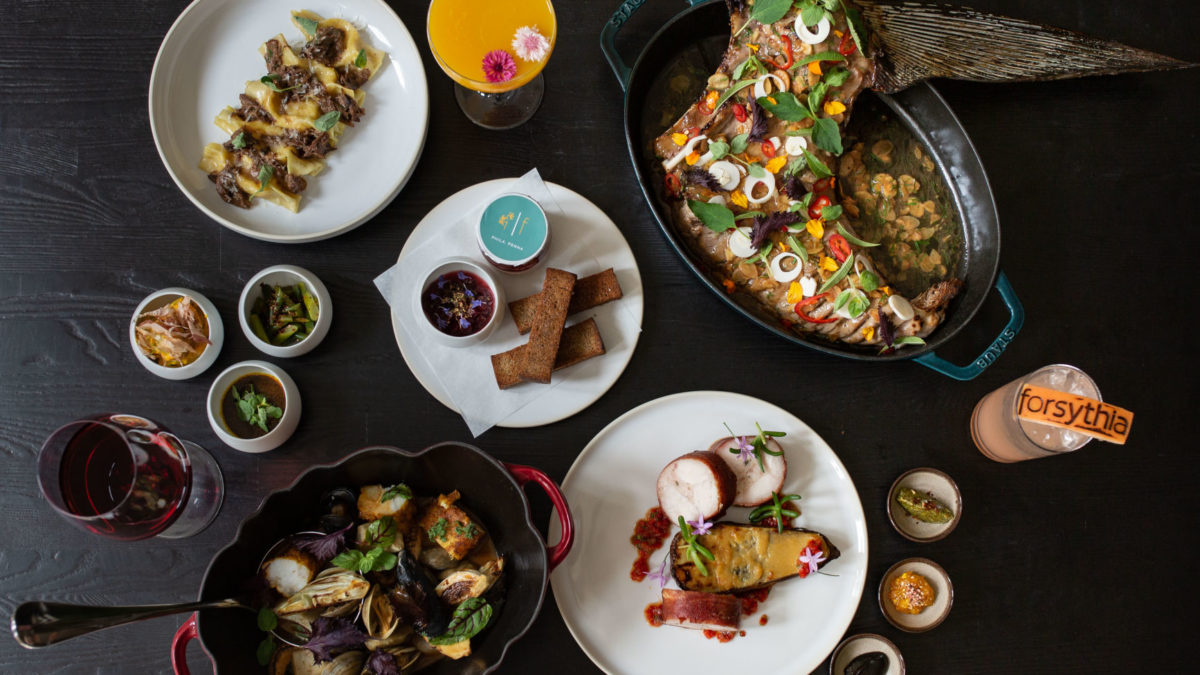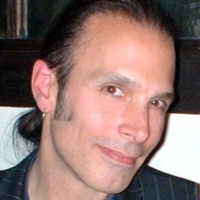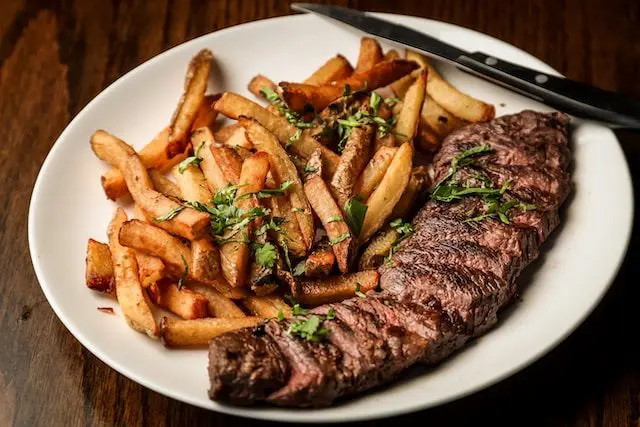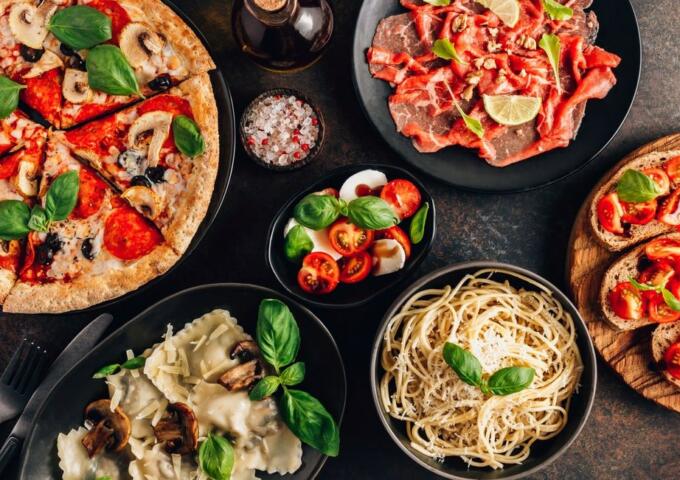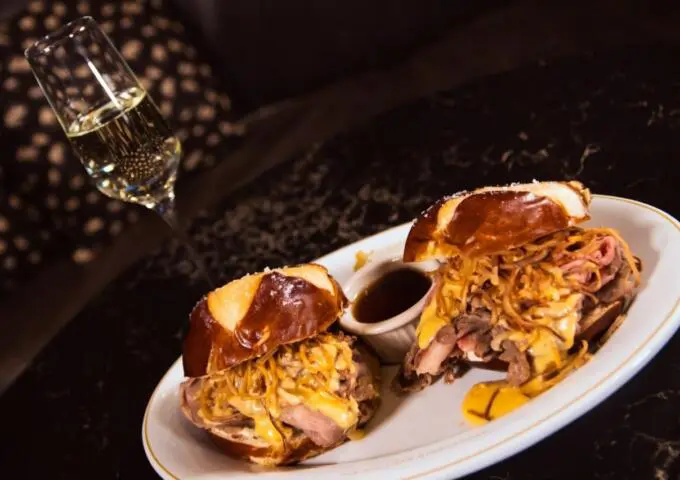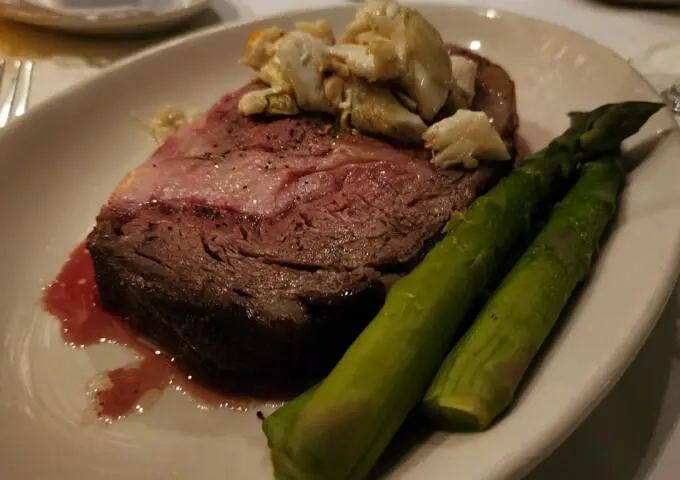The Chris Kearse you see today is not the same Chris Kearse one would have found bobbing and weaving up and down the East Passyunk Avenue restaurant strip exactly seven years ago.
It was a weekend in August 2012 when Kearse — a classically trained French chef known locally for his affiliation with Pumpkin — opened Will, his tiny BYOB specializing in molecular gastronomical wonders, single ingredient focus, avant-garde plating and today what Kearse jokingly refers to as “tweezer food.”
Along with Izumi, Paradiso, Le Virtu and South Philly Italiano-traditionalists such as Chiarelli’s and Marra’s, Kearse’s Will hit East Passyunk hard at the start of its renaissance as what’s sure to be an internationally renowned go-to spot for high-end dining and inventive cuisine.
Confident in his abilities as a chef, with training from Philly’s The Restaurant School and time spent at California’s The French Laundry, then 27 year old Kearse — still shy from a wretched drunk driving accident in his teens that kept him hospitalized for a year — was just coming out of his shell. Even after 20-plus surgeries, he remained cautiously eager to discuss his work, choosing to instead let his superior and artful cuisine serve as the loudest voice in the room.
Seven years is a long time between drinks, however, and East Passyunk has since changed. The local restaurant scene is different, to say nothing of what Philly diners want and expect from chefs and restaurants.
Mostly, Kearse is different, matured, moved on.
He’s no longer running around East Passyunk Avenue, having given up Will on June 2, only to unveil his new French-inspired spot Forsythia in Old City on Aug. 23. With a familiar cuisine but a completely different set of tastes, looks and sensual textures — not to mention a first time cocktail and wine list — for his fresh menu. Even the plating is different at Forsythia, having gone from the spare design of the stately Will’s haute couture elegant oddities to his new bistro’s sexy, big, shared plates of whole roasted chicken, deep dish bouillabaisse and rabbit porchetta.
Not only is Kearse not walking around East Passyunk anymore, but he’s barely walking at all, as you can often spot him driving around town on his hot new motorcycle with his bare, buff arms exposed and freshly covered in a sleeve of complex tattoos. He’s even got some ink of his longtime favorite rock group, Metallica on his chest. The band no doubt serve as inspiration for his own heavy riffing guitar playing.
“I’ve evolved, man, grown up in this business, this city, my art form, and in my life,” said Kearse late in the afternoon of Forsythia’s opening (!), excited, but calm enough to hang out and chat leisurely. “I’ve been considering this for a while and wanted to move from what I was doing. I’m not a guy who looks back.”
Forsythia isn’t a rehash of Will, and it’s not a second coming. Kearse would never let that happen. Instead, Forsythia is its own thing, a brand new animal — just like its owner.
Doubling down
You don’t have to imagine hard to understand where Chris Kearse’s head was on the day his second restaurant opened. Meet him, ask him and he’ll tell you, frankly.
“I’m pumped, and not really nervous,” he told PW, his wide eyes peering through clear rimmed-glasses. It’s almost as if he’s been ready for Forsythia forever.
Kearse is quick to state that in the large space along 2nd and Chestnut — the old location of Capofitto and at least three times the size of Will — his new crew of 30-plus staff members are learning all about him, his ways, what he likes. It’s a far cry from the skeleton crew he had at Will.
“It’s nice to have a staff that can make things happen, and not have everything be on my shoulders,” he said.
He’s quick to add that at Will, everything was, indeed, on his shoulders — doing the orders, front and back of house business, dicing every carrot and slicing every shallot.
Being able to designate responsibility instead of taking on almost the full responsibility of being a hands-on, single but mobile intelligent unit has its merits. One gets used to being a jack-of-all-trades beyond one’s area of expertise.
Might he miss doing it all on his own?
“No,” he said with an emphatic laugh. “It’s actually exciting not to have to do all of that — and yet, it is still a challenge. I’m great at a lot of things and I’m not great at a lot of things. Here, I can double down on what I’m good at: menu conceptualizing, cooking, even the organizational standpoints and morale building. Everything else…. Nah.”
Though he’s only been gone from Will a scarce two months, one might think he’d miss its heady, algebraic cuisine. “No,” he said, quietly. “I’m naturally a forward thinking person. I’m more focused on the future than I am the past. What can I do next? What can I do in the future? That’s where my head is at, rather than looking back.”
Beyond being a forward thinking and on-the-move chef, the biggest reason for Kearse not ruminating, marinating or living in the past comes from his deepest wounds. At 16, the Levittown youth was in an automobile accident with a drunk driver that impacted much of his life and looks. He underwent nearly 30 skin grafts, from forearm to face. HE had jaw reconstruction that featured metal and mesh, the loss of teeth, the loss of his ability to speak for a year, the loss of his sense of smell, constant pain. All of this damage has taken its physical and emotional toll on Kearse.
And yet, he notes that he has never and will never let it affect where he wants to go or who he wants to be. It’s this past tragedy that drives him forward and into a constant state of forward living.
“That’s definitely why I am this way,” he said. “I’ve had therapy. Using work as my focus…. So hard, so challenging, so time consuming…. I wouldn’t have time to worry about my personal demons.”
With that, Kearse has honed his strengths to a fine point, making a new menu based on his classical French training and the natural evolution of that style, with his own growth spurts serving as culinary twists.
That training, along with time spent at Alinea, Tru, Café Gray, Charlie Trotter’s in Chicago, London’s Gordon Ramsay and the aforementioned French Laundry, is what led him to Will’s sculptural designs and experimental processes of powders, sprays, fish foams and meat glues. For years, these menus’ high-minded aesthetic defined Kearse and his cooking.
At Forsythia, two intense months with his management team — headed by general manager Jennifer Camela, who also steers the bar and its cocktail and natural wine program — meant getting to know him as the chef-owner, as well as his likes/dislikes, his philosophies and the ways he moves.
“And that was fine, great, but there had to be an evolution at some point,” he said. “I was 27 when I started and Will was everything I had learned up to that point, on one menu and every dish.” As his time with Will went on, Kearse’s own stylings, peculiarities and signatures took hold beyond schooling. “Turning 35 as I am this year, I realized that the stuff I wanted to do at Will…I couldn’t. That’s not what Will was. Forsythia is not what Will was. So, I got tired of it, I guess.”
With that, it’s easy to understand how and why Kearse hopped around from job to job and city to city when he first graduated from The Restaurant School. “I’m older now, and wiser now, and accept things more. It’s basic maturity. Talking to my therapist, I believe I have totally detached myself from what happened then. I don’t spend a lot of time on social interaction. My life is about the business, the food, always getting better and moving forward rather than looking back or missing something that I once had.”
Tattoos. Motorcycles. A continued love of heavy metal. Bouts of CrossFit. Eventually, these all became part of how Chris Kearse moved forward after his tragedy, and they continue to shape his health, well-being and self-preservation.
Getting the hell out of South Philly and East Passyunk Avenue were another part of his safeguarding.
Of course, Kearse was thrilled to get in on the East Passyunk Renaissance early in the game. “Like so many things in my life, if one person just gives me a shot, I know I could make something of it. That’s all I need, a foot in the door,” he said.
East Passyunk was just that: his shot. Perfect timing, too, as he was ready to move on from Pumpkin — an early home for avant-garde but homey culinary technique and taste sensations.
“There was such great energy around that block,” Kearse said. “Around Will, in particular. On opening night, my phone went on the fritz. When it finally [opened] I had 57 text messages. Everyone was psyched about Will.” Beyond being a chef, Kearse was raw to the business of running a restaurant. He hired friends to work there when perhaps he shouldn’t. He worked at Will every morning until 3 a.m., and lost track of his life and his home. “Got to do it. Got to do it though,” he added.
Going into year No. 6 of Will, East Passyunk (or at least Kearse’s slice of it) had begun to shift. Izumi and Paradiso had left the block due to rising rents, and these price hikes soon affected his space as well. Kearse understood that landlords raise prices when a block is at its optimum popularity, and taxes are often doubled.
“Things were changing. PARC — the Passyunk Avenue Revitalization Corporation — had cut its budget. The price to buy my place, let alone rent, had jumped to a price that didn’t leave me many choices. It was almost as if my landlord didn’t want me there long term. It became harder and harder to stay in business down there,” he said.
Then there was the fact that the hip singles and young millennials who had helped fuel East Passyunk’s restaurant boom had gone off and had kids who were probably having kids of their own. “Suddenly, a particular restaurant with a particular cuisine such as mine may have become out of reach,” he said. “Keeping up and staying there with the small budget that I had for such high end food just got harder.”
The community of East Passyunk that remained — particularly its restaurateurs and the customers they served — would have to become a thing of the past if Kearse was to survive and thrive.
He’s now in Old City building a newfound sense of community.
“I am looking for that sense of community here, by the way,” Kearse said. “Amada’s a few doors away. Buddakan is down the street. That camaraderie would be exciting to have here. I talked to Marc Vetri and I talked to Greg Vernick about business, and they were both saying for me to never force it. That a new space or idea should be a natural progression. Have a goal. Have a target. But it has to just be comfortable and click.”
‘Why not just reinvent yourself?’
When it came time to leave Will, did Kearse ever consider doing like many a chef before him — Spraga, Garces, Schulson, Cicalla, Vernick — and simply run more than one restaurant?
That’s an emphatic “no.” Turns out, Kearse actually wants to be where his food is at all times. “Having two or more places that I can’t be at — that’s not who I am,” he said. “It’s not an insecurity or that I don’t trust people. At Forsythia, I’m trusting like 35 people. It’s just not what I want. For me personally, my food and my style, people expect me to be here. I expect me to be here. I want to be here.”
Plus, when Kearse employs people, he wants them to work with him, not for him.
“Each restaurant has its own culture within its four walls. Building and maintaining morale is important to me,” Kearse said. “I can’t do that If I’m not here, at a restaurant of mine in another part of town.”
So, Chris Kearse is solely at Forsythia in Old City.
He’d been considering cuisines and toying with where his classical French training with a twist could take him when his younger brother said something simple: Why not just reinvent yourself?
“Doing the same thing over and over is not a challenge, I get that,” Kearse said. “The menu for Forsythia, what it became, that’s a challenge. Canapes. Shared plates. Not so super-composed entrée plates — all of that is different for me from Will. My brother Matthew said to reinvent myself, and I did.”
It took a while to let his brother’s advice sink in. Kearse laughs when he states that he didn’t even write a menu for Forsythia the first week of August, which was a mere two weeks before opening. “I had an idea, a style and the price points, but nothing actually laid out — until I did, and then it all just clicked,” he said.
It’s impossible not to agree after dining during the soft open at Forsythia that Kearse’s French signature was prominent. It was apparent in items such as his masterful, deeply rich Foie Gras, with plum and buckwheat brioche. His stomach-warming Whole Roasted Hen Of The Woods (with Smoked Ricotta, Madeira, and Sumac) also underscores the French flair. There was an epic entree of a hearty Rohan Duck with Cashew, Bing Cherry, Morel Mushrooms and his cleverly cut Tuna Collar Amandine with Fresno Chili and Hearts of Palm.
The bar seating area at Forsythia — a space without a reservation sheet where walk-ins are always welcome (something Will never had) — is a feature that delights Kearse.
“I really wanted that, a place where you could be in shorts or a suit and come in for happy hour or late nights and have a cocktail and a snack. That alone makes me so happy,” he said.
Poised to have more fun as a restaurateur, a chef and as someone just dining for hedonistic pleasure, Kearse doesn’t have to have a mission statement for every dish as he did at Will. He wants diners to have a shot at something slightly more familiar and accessible at Forsythia.
“I’m different and the way people eat is different in 2019 than it was in 2012. I want to do something approachable that’s still very much me — not dumbed down — with detailed components but streamlined. There’s ways of doing that, and I can do that,” he said.
If you’re coming to Forsythia, don’t arrive expecting Will 2.0.
“And I expect that they will,” Kearse said with a laugh. “But whether you know me or have no notion of what this is, I think you’ll get that Forsythia is sexy, high energy and an adventure. Look, when I started having a restaurant at 27, I was bare skinned and walking around. Now, I’m covered in tattoos and riding a motorcycle. My food then was complicated and now it’s simpler but sexier. The only thing that has remained is that I love taking care of people. That’s always going to be there, with me, no matter what I do or where I open.”
Forsythia | 233 Chestnut St. forsythiaphilly.com/
TWITTER: @ADAMOROSI
